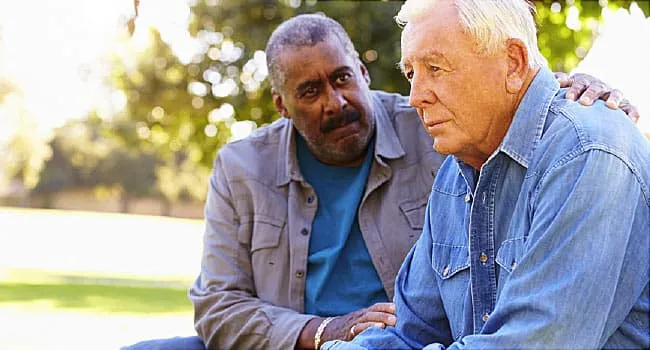You’ve come through diagnosis and treatment, and now you’re ready to move forward with a fresh start. But as you begin to put your life back in gear, you may need to learn how to manage mental health challenges that could be part of your “new normal” as a cancer survivor.
Jency Emo of Fort Myers, FL, has some firsthand experience. She was diagnosed with breast cancer after her first mammogram at age 43. After a lumpectomy and radiation, her cancer wasn’t quite gone, so her doctors recommended a double mastectomy. When surgery was over and recovery began, she felt relieved, but also uneasy.
“[I] felt like I wasn’t informed about a lot of the process and lasting effects,” Emo says. Post-cancer checkups made her “tense and scared,” even though she knew the disease had been caught early, and there wasn’t a big chance of the cancer returning. She was ready to close the door on that chapter of her life and move on. “I wanted it all done quickly, and it wasn’t going to be that way,” she says.
“A lot of people want that moment [when treatment is complete] where they hear, ‘You’re done, go back to how you used to be!’ ” says Michelle B. Riba, MD. She’s director of the PsychOncology Program at the University of Michigan Comprehensive Cancer Center in Ann Arbor. “But you’re still going to be under the microscope for a while.”
Managing Your Emotions
After cancer treatment, it’s possible to face problems like depression, anxiety, and even posttraumatic stress disorder (PTSD). A visit to the doctor’s office can sometimes be the trigger for emotional upheaval. When it’s time for your post-cancer checkup, it’s good to have tips on hand to manage the stress. You can:
- Reach out to your support network before each checkup. Ask a friend or family member to go with you to the doctor’s office.
- Schedule cancer-related medical appointments early in the day, so you’ll have less time to wait before you go.
- Use relaxation techniques like deep breathing or meditation to help with feelings of anxiety before and during your doctor visits.
For some, anxiety isn’t triggered by medical appointments — it comes from not having them. “There are studies that show that people do feel more anxious or sadder when they’re done with active treatment,” Riba says.
Seeing a doctor may make you feel like you’re doing something that keeps you safe, she says, which can feel reassuring. Make sure you’re aware of your follow-up visit schedule so you’re not surprised when they start coming around less often.
Safeguard Your Mental Health
Once you’ve had cancer, it’s natural to wonder if it’s going to come back someday. Normal pains and twinges you would have overlooked before your cancer diagnosis may make you anxious now.
“Physical symptoms that remind a person of how this all started can make them worry about metastases [cancer spread], make them think a headache is something more serious,” Riba says.
Don’t let your worry hang around. Talk to a doctor if you’re concerned about your health. Sometimes, all it takes is a call or quick visit to ease your mind.
Plan for a Positive Future
To keep tabs on your mental health and curb anxiety, anger, and depression for the long term, try these strategies:
Talk about how you’re feeling. Keep your friends and family in the loop about your ups and downs, or talk to a mental health professional. Open up about your fears and worries, and let them know if you’re sad or angry.
Control what you can. Take charge of important lifestyle changes, like your nutrition, exercise, and social activities.
Find the right support group. Make sure it’s a good fit for you. Find out as much as you can about a group before you decide to join. How big is it? When, where, and how often does it meet? Who goes to the sessions, and who leads them?
Focus on your faith. Cancer can bring some people closer to their spiritual side. If you’re religious or spiritual, lean into your practices as a source of strength.
Get creative. “People sometimes like to express how they’re feeling not just through talking, but through different mediums,” Riba says. Art, music, dance, or writing can be a great outlet for your mental health.
Give back. “A lot of people feel better when they’re giving to others,” Riba says. Feel free to volunteer for different causes, such as raising money for research. Find ways to use your post-cancer treatment time to do good things for others.
Stay positive. Spend your energy on hope when you can. “Live, breathe, and embrace this life you have been given,” Emo says. “This is your time now.”

